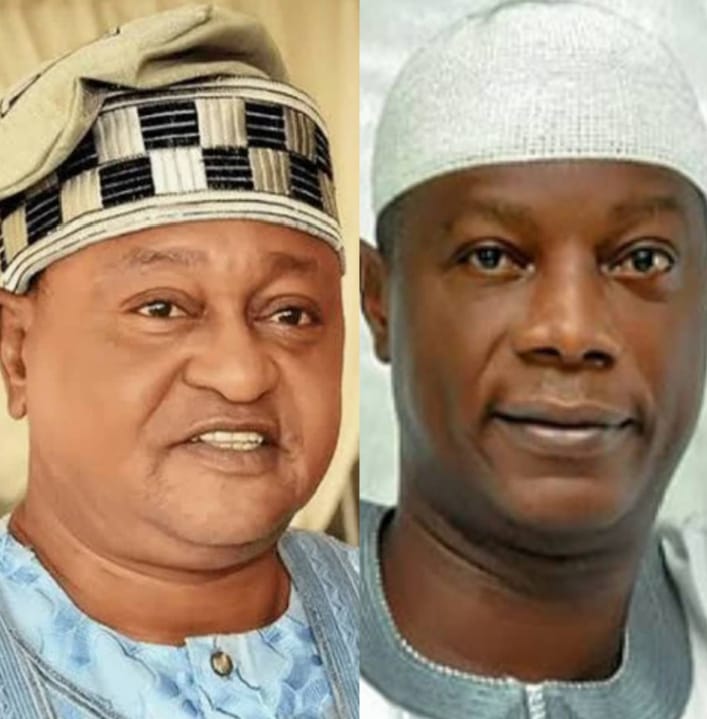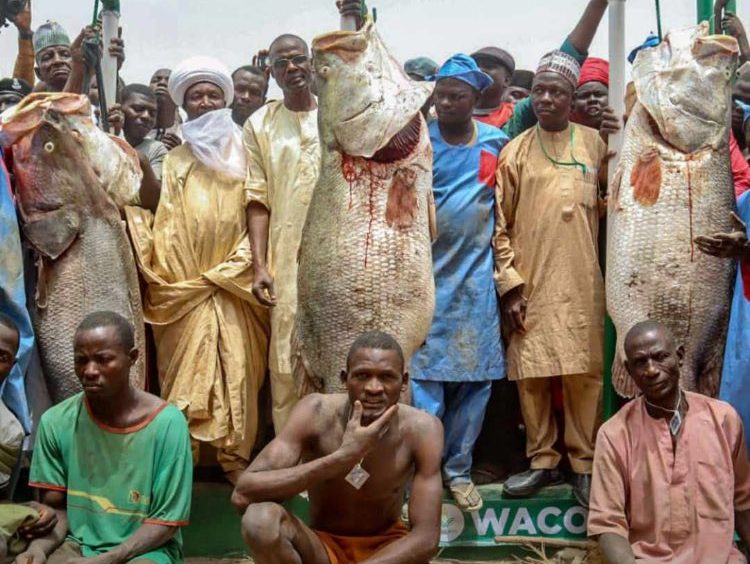Ladoja’s 32-Year March to Olubadan Throne
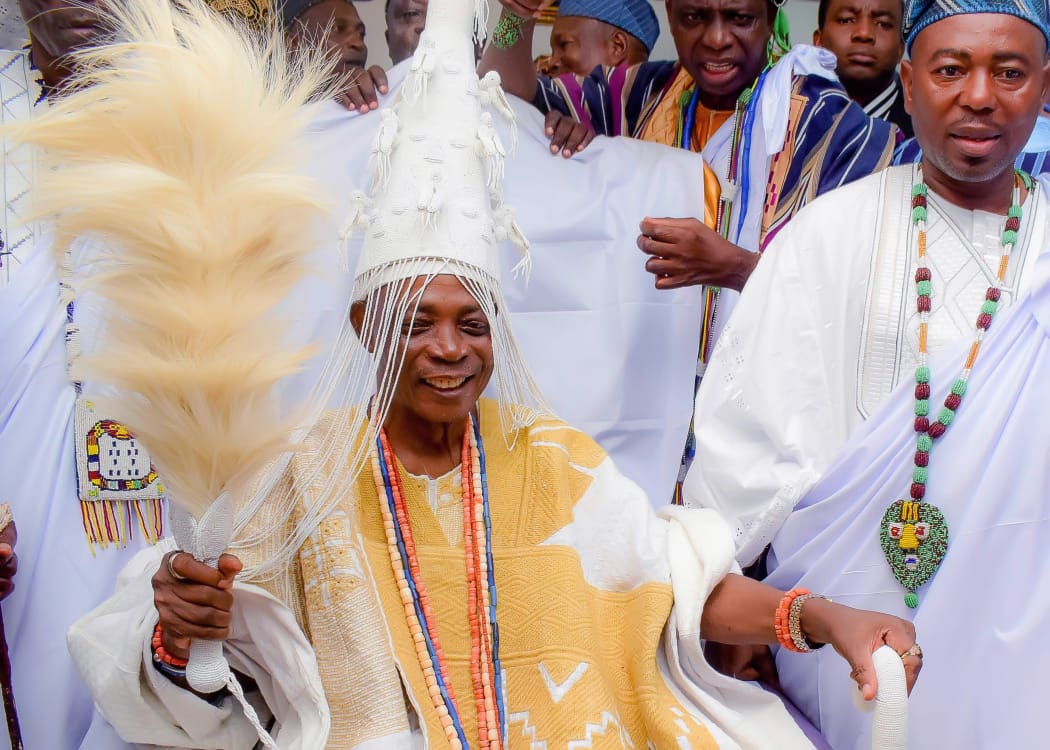
By Global Mirror News Special Feature Desk
The drums of Ibadan never lie. When the royal bata drums echoed through the ancient city on Friday 26th September 2025, the rhythm carried more than sound—it carried history, destiny, and fulfillment.
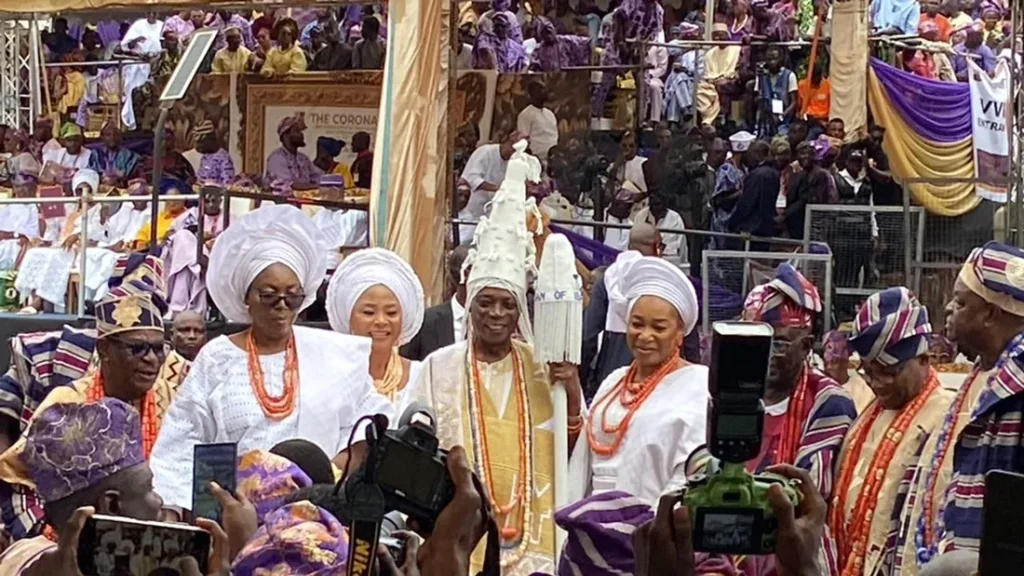
On that day, High Chief Rashidi Adewolu Ladoja, a man who had walked the twin paths of politics and tradition, ascended the revered stool of the Olubadan of Ibadanland, becoming the 43rd custodian of a throne that commands respect not only in Yorubaland but across Nigeria.
It was the crowning moment of a 32-year journey that began quietly in January 1993, when he was installed as Jagun Balogun of Ibadanland.
From that modest step, he climbed the painstaking ladder of Ibadan chieftaincy, title after title, year after year, until destiny placed the royal crown upon his head.
A City of Warriors, A Throne of Patience
Ibadan is no ordinary city. Founded in the early 19th century as a war camp, it grew into the largest city in West Africa by landmass.
Its traditions reflect this martial past: the Olubadan succession is structured around two lines—the Otun (civil) and the Balogun (military).
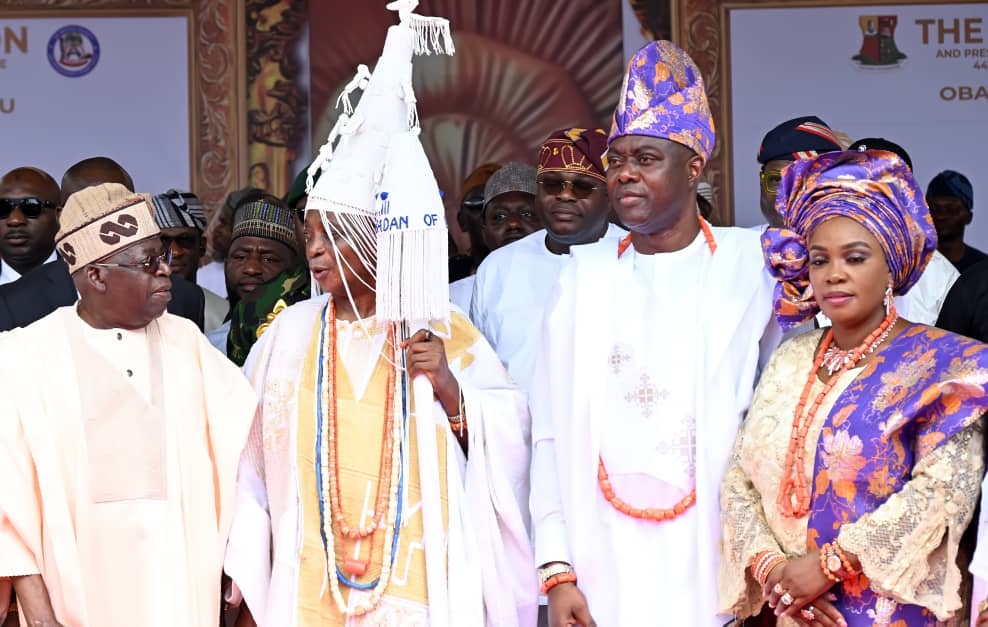
Every Chief begins from the bottom rung and must climb steadily through ranks such as Jagun, Ajia, Bada, Aare, Osi, Otun, before finally reaching the peak.
Unlike other Yoruba monarchies, there are no royal families here. In Ibadan, the throne is open to any true-born son.
But only those who live long enough, and who remain patient and dutiful, eventually sit on the sacred stool.
This system is both admired and feared: admired for its fairness, feared for its demands. “It is a marathon, not a sprint,” an Ibadan elder once said.
“You must outlive rivals, endure politics, and respect tradition. Only destiny decides who wears the crown.”
For Ladoja, the marathon lasted three decades and two years.
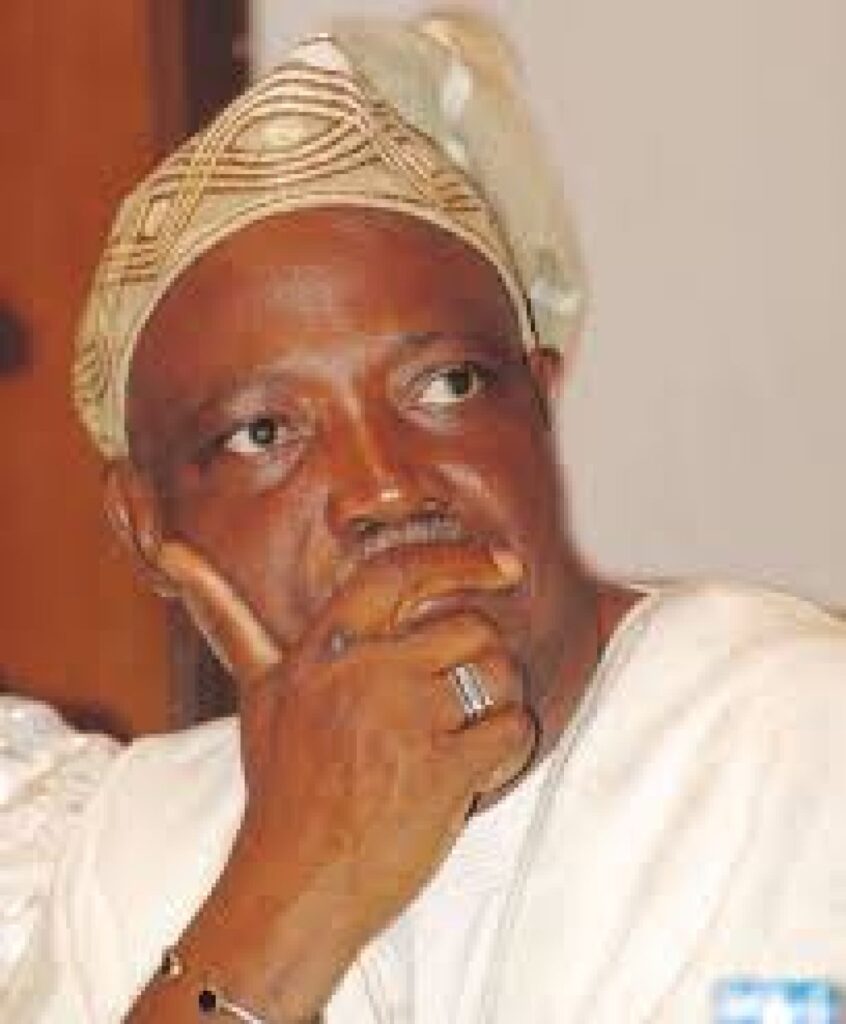
The Politician Who Never Abandoned Tradition
Born on September 25, 1944, Rashidi Adewolu Ladoja is a man who wears many cloaks.
To Nigeria, he is remembered as the Governor of Oyo State (2003–2007), a political heavyweight who survived impeachment, party intrigues, and bitter rivalries.
To Ibadan, however, he has always been more than a politician—he was a chief, a custodian of tradition, and a patient climber on the royal ladder.
Even at the height of his political battles—including his controversial 2006 impeachment and later court reinstatement—he never abandoned his palace duties.
He attended council meetings, participated in traditional rites, and honored the hierarchy of chiefs.
His resilience was tested again in 2017, when Governor Abiola Ajimobi sought to crown 21 high chiefs and baales.
Ladoja stood alone against the move, insisting that the Olubadan stool must not be diluted. He went to court, and though criticized, his stubborn defense preserved Ibadan’s succession integrity.
Today, that victory looks prophetic—he defended the throne he now sits upon.
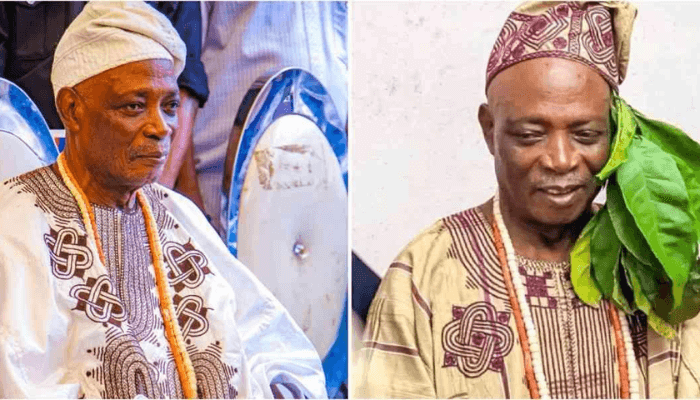
The Coronation: When Ibadan Danced
On the day of his coronation, Ibadan was awash with color. The Mapo Hall, a historic colonial edifice overlooking the ancient city, became the beating heart of celebrations.
Crowds spilled into adjoining streets, traders abandoned stalls, and drummers filled the air with rhythms that seemed to summon the city’s ancestors.
Traditional chiefs in flowing agbadas lined up in loyalty, Government officials came in convoys, and ordinary Ibadan sons and daughters thronged the venue.
Some carried placards with bold inscriptions: “This is our time, this is our king.”
“I have lived to see Ladoja crowned,” said 78-year-old Madam Ramota Adeyemi, her eyes wet with tears. “He has suffered, he has waited, but today God has honored him.”
The new Olubadan, dressed in immaculate white agbada and crowned with the traditional beaded crown, raised his staff of office, symbolizing authority.
The cheers that followed seemed to roll across the seven hills of Ibadan.
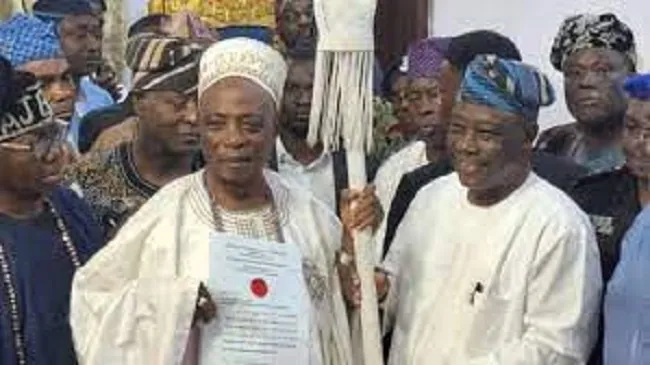
More Than a Crown: The Weight of Expectations
The Olubadan stool is not ceremonial. It is a living institution. As custodian of Ibadan’s customs, Ladoja will oversee land matters, mediate disputes, and advise Governments.
His influence will extend beyond tradition into politics, for Ibadan chiefs are often sought as peacemakers.
With his rare combination of political experience, business acumen, and traditional grounding, observers say his reign could usher a new era.
“We expect him to use his connections in Abuja to bring projects here,” said Segun Akinwale, a youth leader from Oke-Ado. “But more than that, we want him to unite Ibadan’s divided voices.”
Timeline of Ladoja’s Chieftaincy Journey
January 1993 – Installed as Jagun Balogun by Oba Opaleye Irefin.
1998 – Promoted to Ajia Balogun.
2002 – Rose to Bada Balogun.
2005 – Became Aare Balogun, while serving as Governor.
2011 – Elevated to Osi Balogun.
2014 – Advanced to Otun Balogun.
2022 – Became Balogun of Ibadanland, heir-apparent to the throne.
March 2025 – Following the death of Oba Lekan Balogun, he became next in line.
September 2025 – Crowned the 43rd Olubadan of Ibadanland.
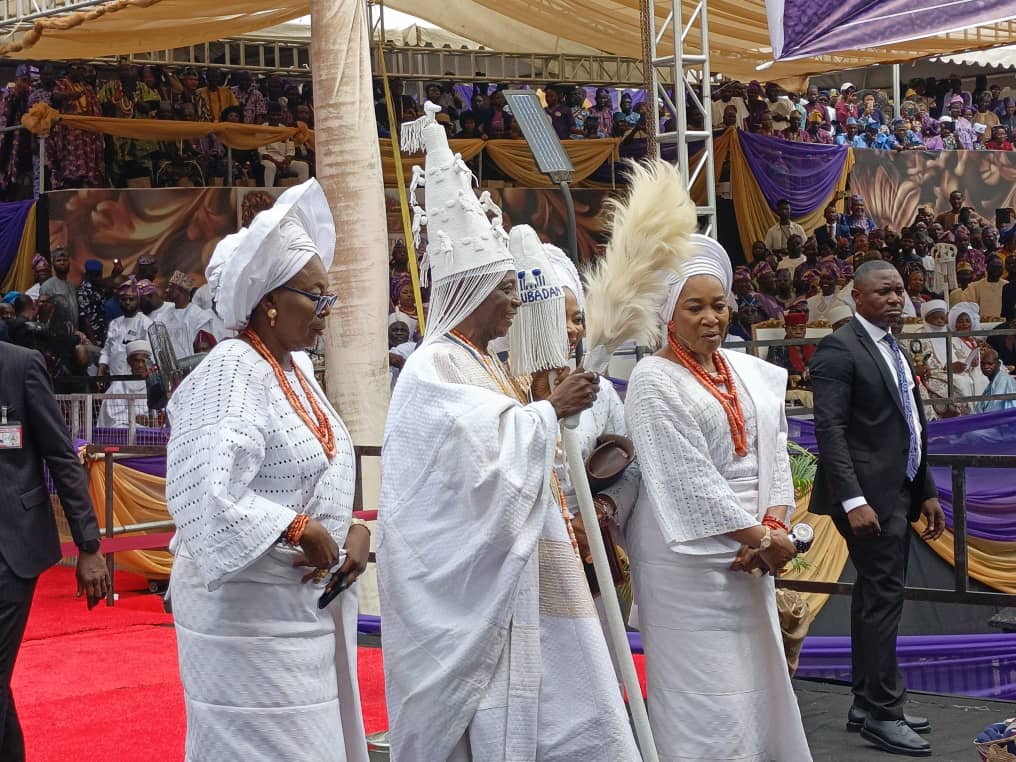
The Story of Ibadan, Told Through One Man
In crowning Rashidi Ladoja, Ibadan has crowned not just a man but the very principle of patience and destiny that underpins its history.
His life mirrors Ibadan’s spirit: resilient, unyielding, yet always ready to rise after every fall.
As twilight falls on the day of his coronation, one thing is certain—the drums of Ibadan will keep beating, and at their heart now sits Oba Rashidi Adewolu Ladoja, a man whose 32-year march to the throne has become a lesson for generations.


